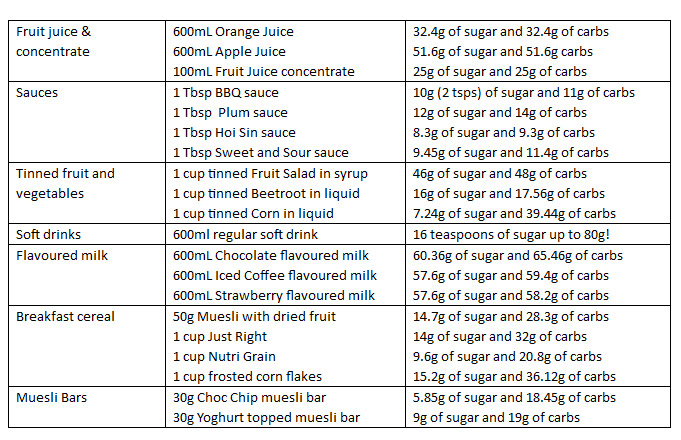The Skinny On How Sugar Is Making You Fat

The Skinny On How Sugar Is Making You Fat
While many people are aware of the benefits of low-carb eating for weight loss – diligently avoiding potatoes, white bread and pasta – plenty continue to consume the worst carbohydrate of all without realising, and then wonder why they're not getting anywhere.
And the culprit is sugar.
'Following a low-carbohydrate eating plan without factoring in added sugar in packaged foods is a sure way to veer off course," says Ms Colette Heimowitz, Vice President of Nutrition and Education at Atkins Nutritionals, 'but with sugar a hidden ingredient in many common foods people don't think of as -high carb', it's easy to see where the confusion creeps in. Foods sold as -low fat' are often the worst offenders, with sugar added to replace the fat that has been removed."
'By opting for a low-carb lifestyle without following a scientifically-formulated eating plan, people often end up consuming more carbohydrates than intended not adhering to any plan at all – and the side effects can be serious, and not just on the scales," she added.
'Consuming excessive sugar may cause headaches, chronic tiredness, -brain fog', irritability, bloating and weight gain, and long term consumption of excessive sugar can lead to type 2 diabetes, high blood pressure and heart disease. It also ruins our ability to determine when we're satiated, driving us to eat more often than necessary, and long after we're actually full."
Popular foods that are high in carbohydrates as a direct result of their sugar content (both natural and added) include:
There's a rapidly growing body of scientific evidence highlighting the negative health consequences of caving to our sugar cravings, with a recent analysis revealing that for every excess 150 calories of sugar there's an 11-fold increase in the prevalence of type 2 diabetes compared to obtaining the same 150 calories from fat or protein sources – regardless of weight of physical activity.
'In fact, a recently published nutrition review found that restricting dietary carbohydrates is the single most effective means to reduce the features of metabolic syndrome, and should be the first step in managing diabetes, proving that low-carb eating has benefits that go way beyond the waistline, " advised Ms Heimowitz.
'A carefully designed low-carb eating program, such as Atkins, which advocates eating healthy fats, adequate protein, plenty of colourful high fibre vegetables and low-sugar fruits, is a sensible way to cut back on sugar consumption – and cravings – and to help your body burn fat (instead of carbohydrates) for fuel, boost your energy and improve overall health," explained Ms Heimowitz.
As for those times when you really feel the need for a sweet fix, Atkins' range of bars and shakes – available in supermarket health food aisles and pharmacies – deliver the taste of your favourite treats, without the added sugar.
MORE



